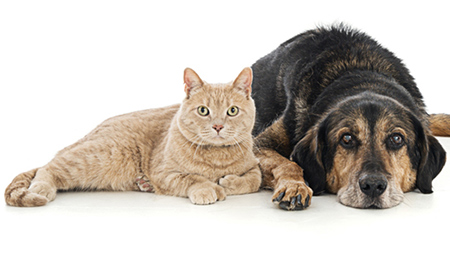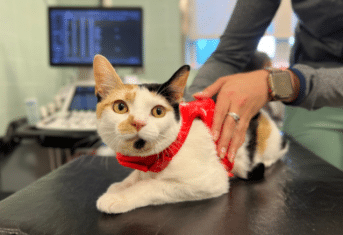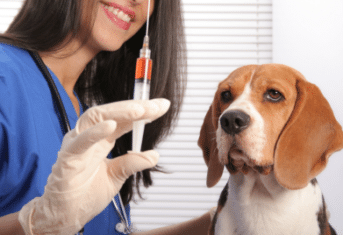Keep Your Pet’s Kidneys Healthy by Avoiding Kidney Toxins

Keep Your Pet’s Kidneys Healthy by Avoiding Kidney Toxins
March 9, 2017 is World Kidney Day. This year’s theme is “Healthy Lifestyle for Healthy Kidneys” and one part of a healthy kidney lifestyle is avoiding exposure to substances known inflict damage on kidneys. Since dogs and cats have kidneys just like you and I, my contribution to World Kidney Day will be to highlight substances known to cause acute kidney injury in dogs and cats.
Lilies Are Pretty, But Deadly to Kitty
Everyone loves a bouquet of beautiful flowers to brighten up their coffee table. Cats love them too, especially if they have long leaves for gnawing and batting. Often found at the grocery store, lilies are some of the most common flowers found in bouquets, but lilies of all types should be off your list of cut flowers and potted plants if you have cats. One bite of any type of lily (Easter, Tiger, Day, Asiatic, or Japanese Show lily) can cause acute kidney injury leading to kidney failure in cats. If your cat accidently eats a lily flower or plant, go immediately to the animal ER were fluid therapy may help to prevent a long-term kidney problem.
Antifreeze is Safe for Your Car, But Not for Your Pets
Ethylene glycol, the sweet tasting chemical in automobile antifreeze, is another toxin known to cause acute kidney injury. Unsupervised pets readily lap up antifreeze leaked on the road from car engines. If you see your pet drinking the iridescent yellow-green fluid off the ground, go to the closest animal ER. Immediate administration of the antidote medication or hemodialysis, followed by intravenous fluid therapy can save your dog or cats’ life.
NSAIDs: Great for Pain, Tough on Kidneys
Nonsteroidal anti-inflammatory agents (NSAIDs) make a huge difference in the quality of life for creaky arthritic dogs and humans alike. Without canine NSAIDs like carprofen, deracoxib, meloxicam and etogesic, many geriatric dogs can hardly move about. Given at the appropriate dosage, these drugs are life savers; an overdose can cause acute kidney injury. If your dog accidently consumes any human NSAIDs or chews the bottle of his own NSAID, head immediately to the animal ER. Don’t ever adjust the dosage of your dog’s NSAID without your veterinarian’s advice and never give your own NSAIDs to your dog.
Grapes and Raisins are Tasty Toxins
Most of us consider grapes and their dried offspring, raisins, a healthy snack; however, for dogs, a grape or raisin treat will send them to the hospital with damaged kidneys. The exact toxin contained in grapes and raisins remains elusive, but any type of grape, organic, store brand, fresh or sundried, can injure canine kidneys. Since the toxic compound contained in grapes and raisins is unknown, the toxic amount is also unknown. Don’t forget to keep other sources of raisins like breakfast cereal, trail mix and granola bars away from your dog. If, while on your daily walk, your dog snatches up some raisins dropped by the toddler in the stroller ahead of you, head right to your veterinarian’s office for emergency treatment.
Prompt treatment of pets ingesting kidney toxins can result in successful recovery. If your pet eats something unexpectedly, check with an animal poison center to learn if it is a kidney toxin.
Pet Poison Hotline
www.petpoisonhelpline.com
855-764-7661
ASPCA Animal Poison Control
www.aspca.org/pet-care/animal-poison-control
888-426-4435

































